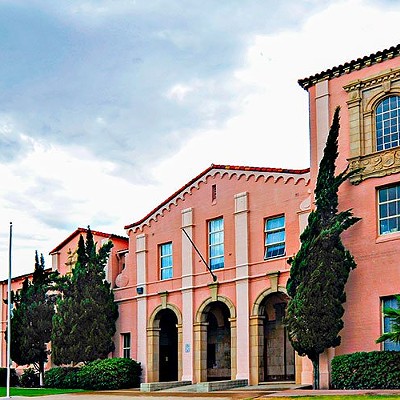It is time for the Tucson Unified School District governing board to stand up to Arizona's bullies.
School officials often teach bullies' victims to seek help from an authority, and this can work. It will not work, however, when state officials themselves become bullies and usurp school-district control. The remaining alternative is the Ernest Hemingway approach: Confront them.
The initiative for "Hispanic studies" began as early as 1996. I made its implementation a key plank in my campaign for re-election to the governing board. Tucson's voters approved. I won re-election by a wide margin, placing second only to Mary Belle McCorkle, who also supported this program to narrow the achievement gap for Hispanic children.
The board voted to create the Hispanic Studies Department in July 1998.
Mexican-American studies has been compared to other ethnic-studies programs in TUSD, which emphasize individualized interventions for raising achievement. In fact, the inspiration to create Hispanic studies came from Karen Wynn, who highlighted her department's successes in elevating achievement among underserved Native-American students. As board clerk, I asked why we could not employ the same strategies with Hispanic youth. The reason was numbers: The Hispanic-studies program emphasized curriculum, because we were asking a tiny staff to impact the performance of thousands of students. Most performance figures since then suggest the effort was successful.
Enter the bullies: Tom Horne, John Huppenthal, et al.—officials who opposed TUSD's Mexican-American studies curriculum. They object to the idea that, by fighting the Mexican War, America may have spread the notions of racial supremacy and territorial expansion along with the blessings of liberty and democracy. They embrace what the New York Herald printed in 1847: "The universal Yankee nation can regenerate and disenthrall the people of Mexico. ... It is a part of our destiny to civilize that beautiful country." Today's bullies agree—the seizure of Mexican land was our "manifest destiny"—and insist courses that question this doctrine be halted, because they "promote racial resentment, ethnic solidarity and revolution."
They first legislated to end such coursework, then funded an audit intended to demonstrate that Mexican-American studies did not comply with their new statute. When the audit did not fault the district, they found a pliable administrative judge to twist TUSD's arm. Finally, they applied a headlock by withholding millions in state aid until the board and its submissive superintendent came to heel.
To their credit, Mexican-American studies supporters have been willing to fight for local control. Board member Adelita Grijalva voted against eliminating the classes, indicating support for appealing the judge's decision, because, as she stated in an interview on Jan. 5, "The district was never informed of specific violations of the law so they could be addressed." More defiant, Mayra Feliciano, a representative of the UNIDOS student group, vowed at a press conference that Mexican-American studies lessons would live on. Indeed! House Bill 2281 outlawed "classes or courses." Perhaps taking teachers out of the classes has not taken Mexican-American studies out of the teachers.
Encouraged by the district's capitulation, though, the state has examined taking more control. Pink-pistol-packing state Sen. Lori Klein entered the fray, armed with legislation aimed at killing "partisan instruction." Klein's bill, which was thankfully voted down, would have prohibited teachers from advancing "partisan or political viewpoints." Administrators not vigorously enforcing the statute would subject their district and themselves to draconian penalties. Clearly, thinking that expurgating classes from the course list would satisfy the bullies is proving to be a historic error.
Hemingway probably underestimated the threat when he wrote in 1922 that the bullies had "worn out their welcome" in Italy, but he surely did not repeat his mistake in assessing Spanish bullies in the 1930s.
It is time for the TUSD's leadership to recognize their mistake, throw off the state's yoke, and litigate for local control.










